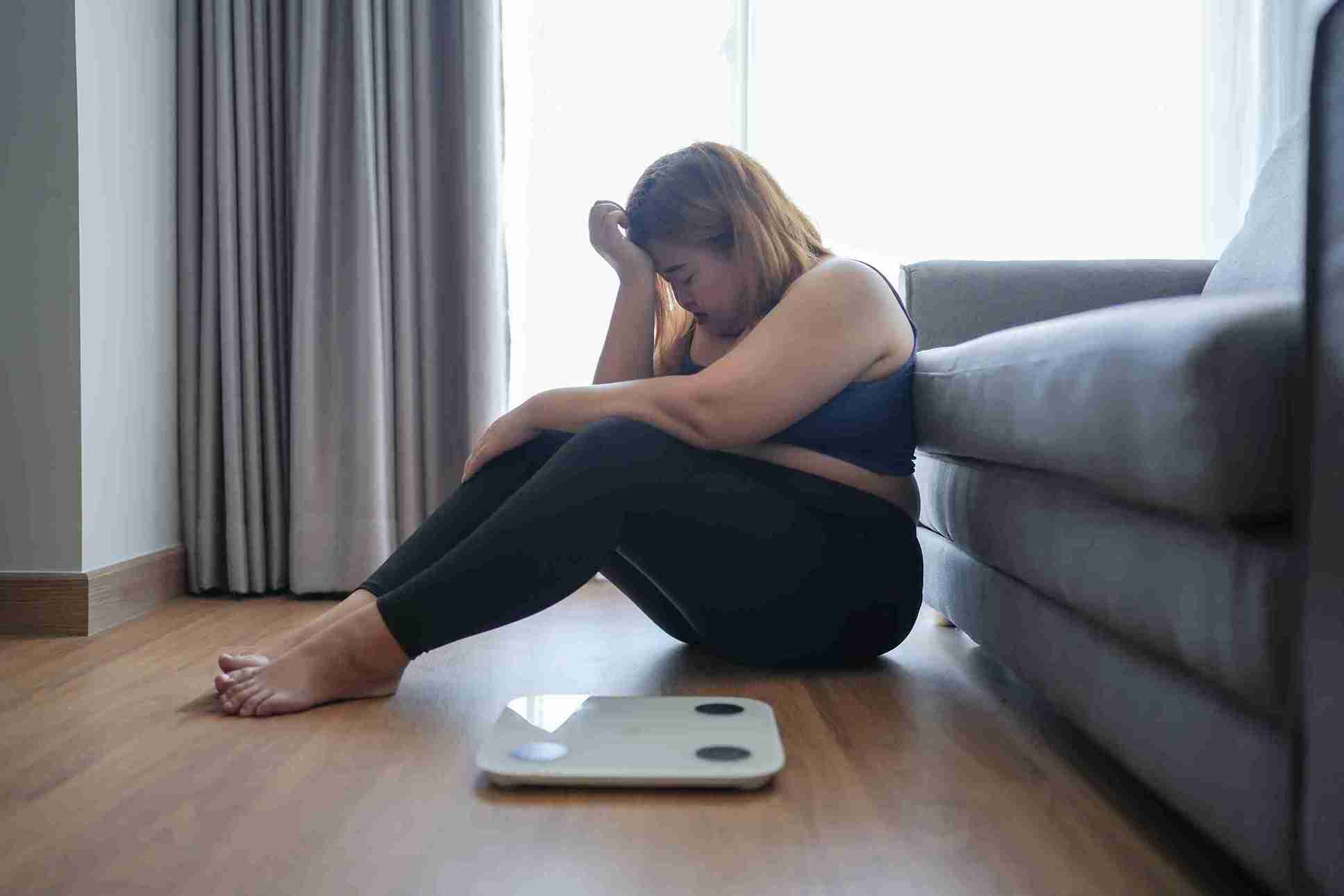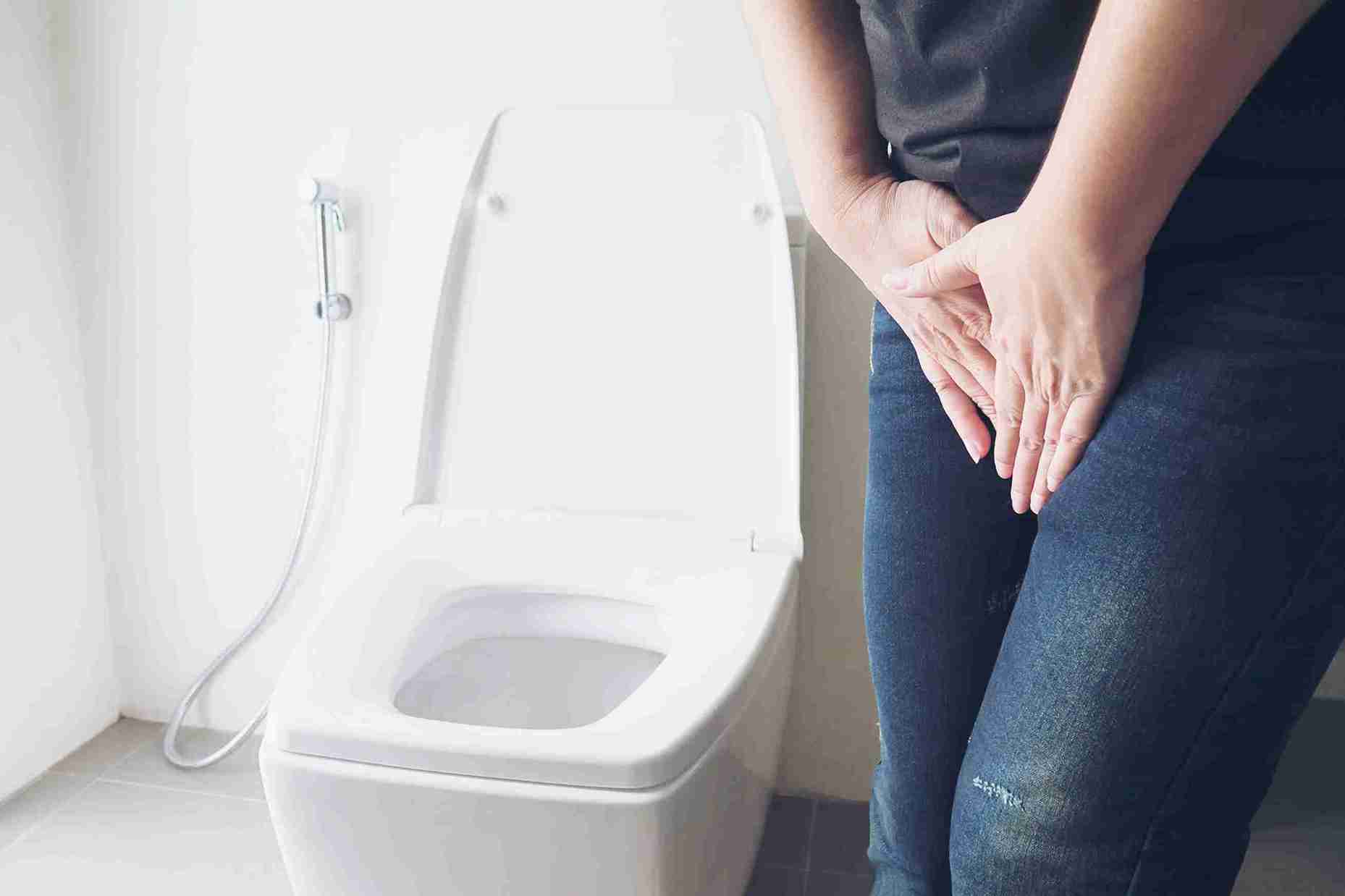
Some health issues are connected in ways we don’t always notice at first. One ailment can lead to another, thus creating a vicious cycle that repeats and becomes increasingly difficult to manage in the long run. Weight gain, incontinence and pelvic organ prolapse may seem like three unconnected health issues. However, upon closer examination, it becomes clear how each of these health issues is interconnected with the others.
In this article, we will explore the connection between these health issues, their effects on one’s health, and the measures that can be taken to break this vicious cycle.

Each of the ailments within this cycle — weight gain, incontinence, and pelvic organ prolapse — needs to be understood before we can begin to examine their connection. Let’s take a quick look at these health issues:
Abnormal weight gain occurs when there is an excessive accumulation of body fat. This condition is also called obesity, and it can lead to severe health issues that ultimately adversely impact quality of life. As per most healthcare studies, people with a BMI (body mass index) of 30 and above are said to be obese or overweight.
Abnormal weight gain can be due to the following reasons:
● Unhealthy eating habits, whereby foods that are ultra-processed or those that contain high levels of sugar or saturated fat are consumed excessively.
● A few people may have a genetic predisposition that makes them more likely to become overweight.
● Leading an inactive or sedentary life, devoid of physical activity and exercise, can lead to excessive weight gain.
● Certain medications, like steroids or antidepressants, may also lead to obesity.
● Health issues like PCOS, etc., can lead to weight gain.
● Mental health issues like anxiety, stress and depression may inadvertently lead to abnormal weight gain, especially when they lead to emotional eating or reduced physical activity.
If abnormal weight gain is not treated or managed in time, it could lead to severe health complications like cardiovascular diseases, diabetes, fatty liver disease, etc. Over time, the accumulation of excess body fat can even impact internal organs, such as the pelvic organs, by putting stress and strain on them, thus impairing their function.
When the urinary system is functioning normally, people have sufficient time to empty their bladders, which involves accessing a toilet and then urinating. However, when this normal process is disrupted, it can lead to conditions like urinary incontinence. Urinary incontinence is a common medical condition that causes loss of bladder control, i.e., there is an uncontrollable leak of urine. This could happen occasionally when a person laughs, sneezes, coughs or exercises. The amount of urine that leaks out can be as little as a few drops or as steady as a drip.
Many people mistakenly assume that urinary incontinence is an issue that happens due to old age. In reality, this issue could be caused by:
● Pressure against the bladder, such as that experienced during pregnancy, is caused by the growing fetus and uterus.
● Urinary tract infections.
● Certain medications, like diuretics.
● Health conditions like diabetes.
● Menopause
● Weakness in the pelvic floor muscles that support the bladder. This could be due to pregnancy or even obesity and incontinence may happen.
Urinary incontinence can affect daily life in many ways. It may cause embarrassment, lower self-confidence, and increase anxiety and stress. If left untreated, it can lead to additional health problems or delay the diagnosis of underlying conditions that may be causing the incontinence.

Pelvic organ prolapse occurs when the tissues and muscles that support the pelvic organs, such as the rectum, uterus, and bladder (the pelvic floor muscles), become weak or stretched. When a prolapse occurs, the pelvic organs drop from their normal position and push against the walls of the vagina. This can lead to a feeling of discomfort, pressure, or a bulging sensation.
The pelvic floor muscles can stretch and weaken due to a number of reasons, such as:
● Vaginal childbirth, especially of large babies or twins/triplets.
● Loss of muscle strength due to old age.
● Connective tissue diseases such as Marfan syndrome, etc.
● Long-term intra-abdominal pressure due to health conditions like chronic constipation, obesity or excessive weight gain.
Pelvic organ prolapse is quite uncomfortable, and it can take a toll on the physical and mental health of people who are affected by this condition. It could lead to health issues like urinary or faecal incontinence, UTIs, kidney infections, etc. Often, the discomfort may even affect sexual intercourse. The emotional toll can include feelings of embarrassment, frustration and anxiety.
Now that each of the elements of the vicious cycle of incontinence, abnormal weight gain and pelvic prolapse has been examined, it’s time to understand how this cycle functions. As stated earlier, these health issues may seem like separate health concerns, but they are closely connected.
Excess body weight puts extra pressure on the pelvic floor muscles, weakening them. When these muscles are weak, they can’t properly support the bladder, leading to urinary incontinence. This incontinence can cause embarrassment and anxiety, which might reduce a person’s physical activity. Less movement can then lead to more weight gain, thereby increasing the strain on pelvic organs. Over time, this strain can cause pelvic organ prolapse. Both incontinence and prolapse can cause discomfort, pain and embarrassment, which may discourage individuals from staying active or alleviating stress and anxiety by consuming comfort foods that contain high levels of sugar and fat.
Inactivity and an unhealthy diet will again contribute to weight gain. The cycle will thus keep continuing. The longer it continues, the harder it will become to break it!

To break the cycle that exists between obesity, incontinence and pelvic prolapse, it’s necessary to take measures that resolve each of these issues. Let’s take a quick look at how this can be done.
● Adopt a healthier diet that focuses on nutrient-rich foods and avoids saturated, highly processed or sugary foods.
● Lead a more active life and do regular exercise.
● Avoid stress triggers that lead to a compulsion to eat unhealthy comfort food.
● Seek support if the physical and emotional toll is too much to handle.
● Maintain a healthy weight that does not put pressure on the bladder.
● Lead an active lifestyle and adopt a suitable exercise regimen, preferably one that includes exercises that strengthen your pelvic floor muscles.
● Set specific times to empty your bladder and gradually increase the time between trips.
● Avoid alcohol and beverages that contain caffeine.
● Take preventive measures that ensure pelvic prolapse does not occur, such as:
● Perform pelvic floor exercises, such as Kegel exercises, to strengthen the muscles and tissue that support the pelvic organs.
● Drink plenty of fluids and increase the intake of fibre-rich food to prevent chronic constipation.
● Maintain a healthy weight to avoid intra-abdominal pressure on the pelvic organs.
● In case the pelvic organ prolapse has already occurred, consult a doctor early and opt for suitable treatments, be it surgical or non-surgical.

In this article, we have seen how weight affects prolapse and incontinence, and how the cycle repeats itself when these three health issues are not addressed on time. Often, a delay in consulting a doctor can be because of a lack of awareness or even embarrassment. However, it is vital to seek early diagnosis and treatment for all three health issues to break this cycle. Therefore, consult a doctor when health issues cause discomfort and negatively impact your quality of life.

Excessive weight, over time, can exert pressure on the pelvic floor organs and muscles, leading to health issues such as incontinence and prolapse.

Symptoms of incontinence and prolapse tend to improve when excess body weight is lost.

Urinary and faecal incontinence are linked to pelvic floor weakness.
